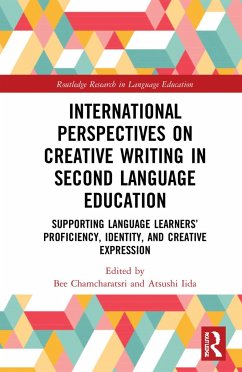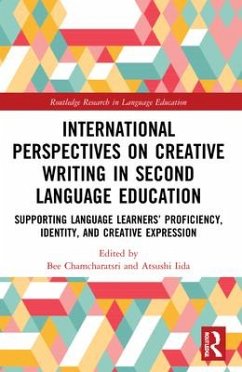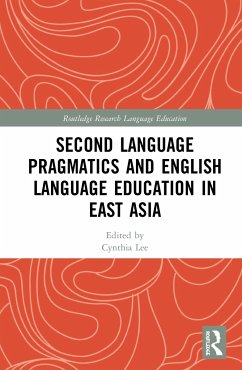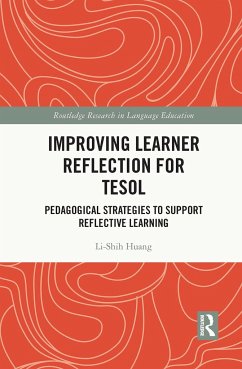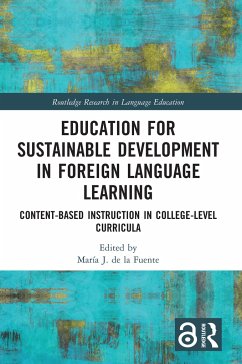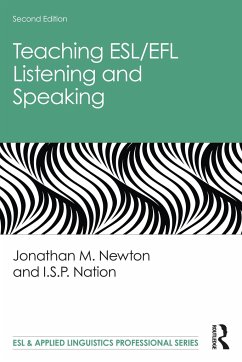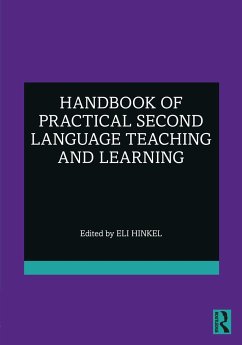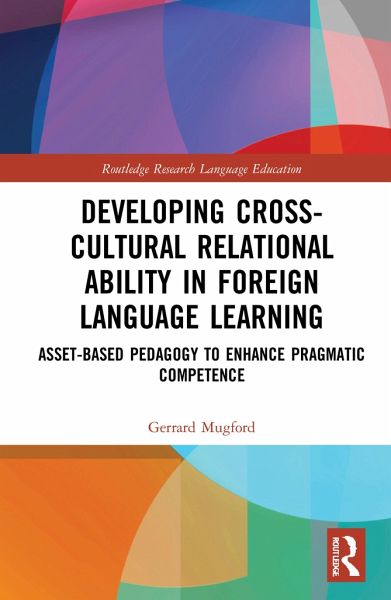
Developing Cross-Cultural Relational Ability in Foreign Language Learning
Asset-Based Pedagogy to Enhance Pragmatic Competence
Versandkostenfrei!
Versandfertig in 6-10 Tagen
41,99 €
inkl. MwSt.

PAYBACK Punkte
21 °P sammeln!
By reconceptualizing successful communication in a foreign language as an enjoyable and uplifting experience, this volume moves beyond a focus on grammatical accuracy and fluency to foreground the ways in which foreign language learners can be encouraged to build on previous achievements and communicative successes in the target language and so develop confidence, commitment and cross-cultural relational ability.Building on Mugford's previous volume, Addressing Difficult Situations in Foreign-Language Learning (2019), this text draws on grounded qualitative data collected through questionnaire...
By reconceptualizing successful communication in a foreign language as an enjoyable and uplifting experience, this volume moves beyond a focus on grammatical accuracy and fluency to foreground the ways in which foreign language learners can be encouraged to build on previous achievements and communicative successes in the target language and so develop confidence, commitment and cross-cultural relational ability.
Building on Mugford's previous volume, Addressing Difficult Situations in Foreign-Language Learning (2019), this text draws on grounded qualitative data collected through questionnaires, semi-structured interviews and conversations with Spanish-speaking learners of English, to illustrate how learners' experiences and insights can be used to inform a productive pedagogy centred around language users' communicative objectives and interactional successes. Chapters highlight bilingual speakers' conscious language use, practices and choices in the target language and the reasons and implications for such deliberate communicative practices and relational behaviour. In doing so, Mugford is able to outline a critical relational pedagogy designed to better equip language learners with the confidence and pragmatic resources they require to engage in positive cross-cultural relational work.
As a valuable, student-centred contribution to teaching and learning of modern foreign languages, this volume will be key reading for researchers, scholars and educators with an interest in language education, TESOL, World Language teaching and Applied Linguistics.
Building on Mugford's previous volume, Addressing Difficult Situations in Foreign-Language Learning (2019), this text draws on grounded qualitative data collected through questionnaires, semi-structured interviews and conversations with Spanish-speaking learners of English, to illustrate how learners' experiences and insights can be used to inform a productive pedagogy centred around language users' communicative objectives and interactional successes. Chapters highlight bilingual speakers' conscious language use, practices and choices in the target language and the reasons and implications for such deliberate communicative practices and relational behaviour. In doing so, Mugford is able to outline a critical relational pedagogy designed to better equip language learners with the confidence and pragmatic resources they require to engage in positive cross-cultural relational work.
As a valuable, student-centred contribution to teaching and learning of modern foreign languages, this volume will be key reading for researchers, scholars and educators with an interest in language education, TESOL, World Language teaching and Applied Linguistics.







